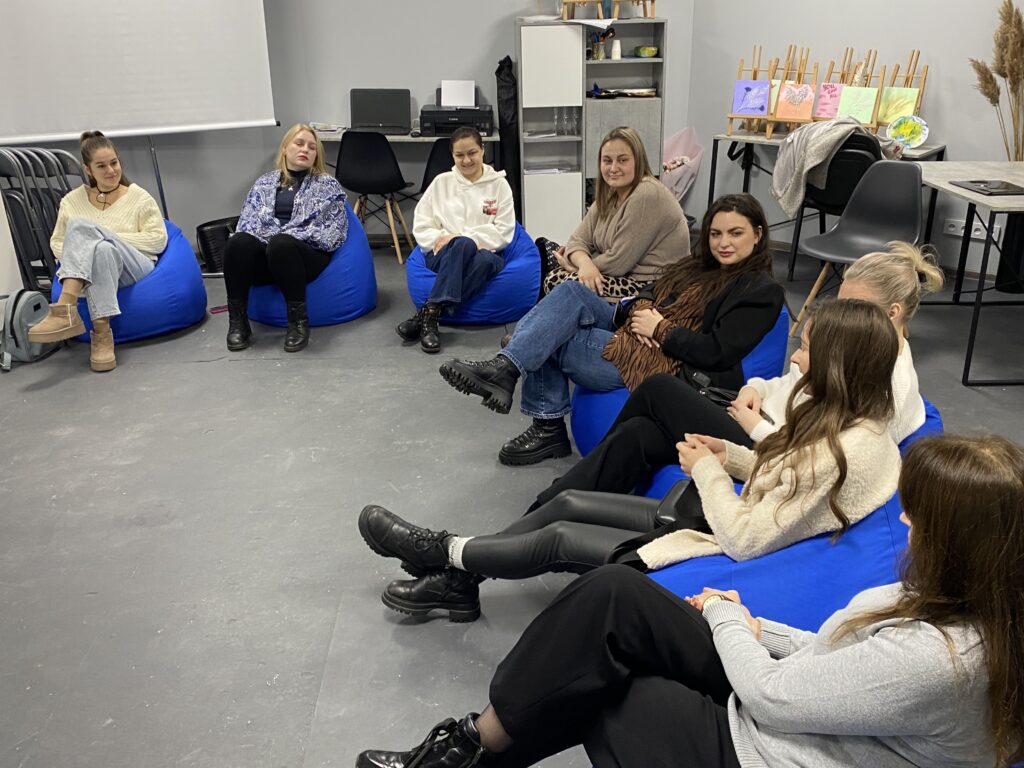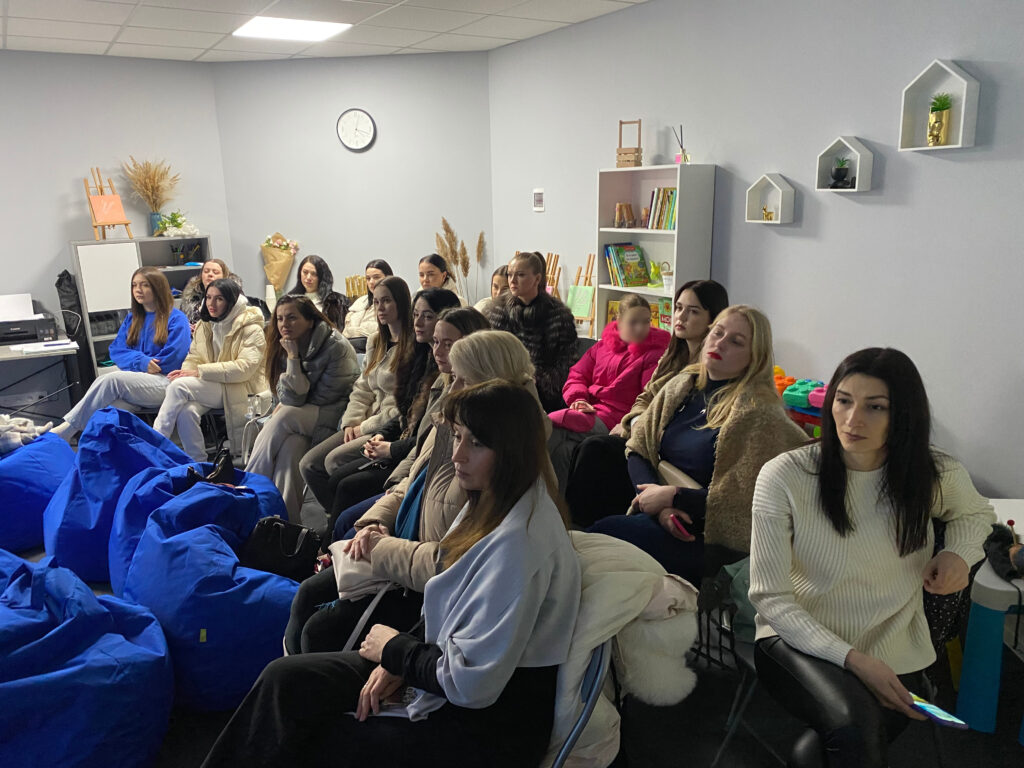Project Report: Safe Spaces for Women in Wartime
SGS 2024 Grantee: Country of Goodwill and Human Rights Bureau ‘We are’, Berezan, Kyiv region, Ukraine
Project: Recovery and Resilience: Strengthening the cohesion of vulnerable groups, their potential and resilience in the context of the ongoing war
A Solution That Offers Grounding: How Mutual Support Communities Became Safe Spaces for Women During Wartime
Ukraine remains under full-scale military invasion — a war that has drastically reshaped the lives of millions. Women have been among the most vulnerable: internally displaced persons, survivors of violence, those left without livelihoods, support, or access to dignity. Among them are also members of the LGBTIQ+ community. How can we respond to these challenges systemically? Two civil society organisations proposed one answer — by joining forces to create an inclusive space of safety and support. And it worked.
The Challenge: Social Isolation, Vulnerability, and Lack of Systemic Support
Since the onset of Russia’s full-scale invasion, millions of Ukrainians have lost their homes, jobs, social ties, and basic sense of safety. Women in particular often found themselves alone with trauma, economic insecurity, caregiving responsibilities, and heightened risks of domestic violence.
For transgender women, the situation was even more dire: they faced discrimination from police and armed forces, and had limited access to healthcare and legal protection.
Although Ukraine has a formal system of social protection, its capacity is severely strained. Local authorities are chronically underfunded, and support systems in small communities — where economic life has ground to a halt — are especially weak.
In response to this crisis, two Ukrainian organisations — the Charitable Foundation “Country of Goodwill” and the Human Rights Bureau “We are!” NGO — joined efforts in the rural Berezan community of Kyiv region to support the most vulnerable women.
The Solution: Building a Living Community of Mutual Support
In partnership with The BEARR Trust, the organizations launched the project “Recovery and Resilience: Strengthening the cohesion of vulnerable groups, their potential and resilience in the context of the ongoing war.”
The core goal of the project was not merely to deliver services, but to build a resilient, inclusive community — a space where every woman could feel safe, dignified, and empowered with purpose.
The project integrated psychological, medical, legal, educational, and career support — becoming the first safe space in the community that welcomed transgender women openly.

How It Worked: Stories That Reframed the Narrative
- Psychological Support
Group and individual counselling provided emotional anchors for dozens of women.
“I felt the ground under my feet again,” says 48-year-old Olha, who, after losing her job and caring for elderly parents, began to dream of launching her own business.
- Medical Services
Access to gynaecologists, dermatologists, general practitioners — including trans-specific care.
“Hormone consultations were a lifeline. For the first time in years, I felt seen,” says Tetiana, an office worker.
- Legal Aid
Lawyers supported survivors of violence and transgender women facing discrimination.
“I was detained for no reason, just for my gender identity. Thanks to the lawyer, I filed a complaint and started to believe in justice again,” one participant comments.
- Career Support
Guidance and skill-building helped many women begin a new chapter.
“I went back to study at 55 — and it saved my self-worth,” says Svitlana.
- Analytics and Impact
An analytical brief report on the war’s impact on the local labour market was produced and is now used by local authorities to inform programmes of support.
Outcomes: Small Changes That Lead to Big Transformations
- 80 women in crisis received comprehensive support.
- 38 LGBTIQ+ participants, including transgender women, sought help for the first time — without fear of rejection.
- 10 local volunteers gained practical experience in psychosocial and human rights support.

What Worked — and What Were the Barriers
Key Successes:
- A systemic approach — not fragmented aid, but support across all spheres of life.
- Effective partnership — a model of synergy between two civil society organisations.
- Genuine inclusion — the project welcomed women with children, trans individuals, and those with a history of violence.
Main Challenges:
- Limited financial resources — demand far exceeded available funding.
- Lack of accountability mechanisms — 14 documented cases of rights violations against transgender persons remain unresolved in slow legal proceedings.
Project Legacy and the Path to Scaling Up
The most valuable result is not in the numbers — but in deep personal transformations. Women became more confident, formed support circles, and reclaimed their voices and dignity.
The community witnessed that inclusion is not a buzzword — it’s a path to collective resilience.
“A safe space is not a luxury. It’s a basic need. And we already see how our experience is inspiring other communities that now come to us for knowledge and support,” say the project coordinators.
A Partnership That Inspires
“Support from The BEARR Trust is more than a grant. It’s a vote of confidence in our idea, and a belief that care, inclusion, and humanity can truly change the world,” the organisders conclude.
The Recovery and Resilience project has become more than a crisis response. It is a model of how grassroots efforts can redefine global ideas of equality, safety, and the collective power of women’s solidarity. And this is just the beginning.
Photos by Tetyana Cherniuk
Contact:
Volodymyr Kosenko
Director,
HUMAN RIGHTS BUREAU ”WE ARE!